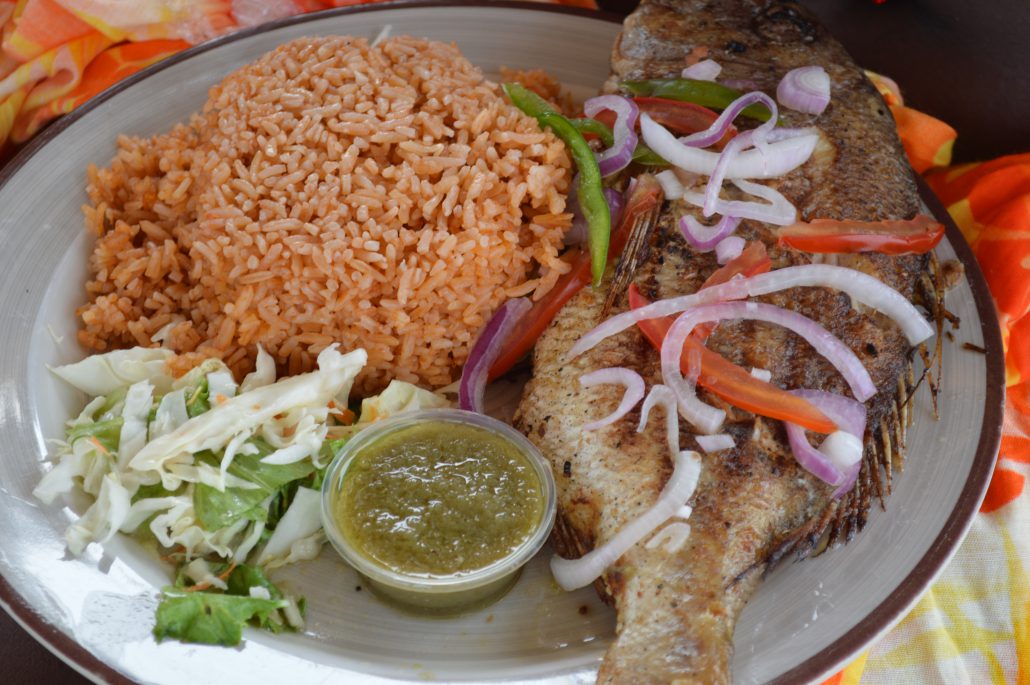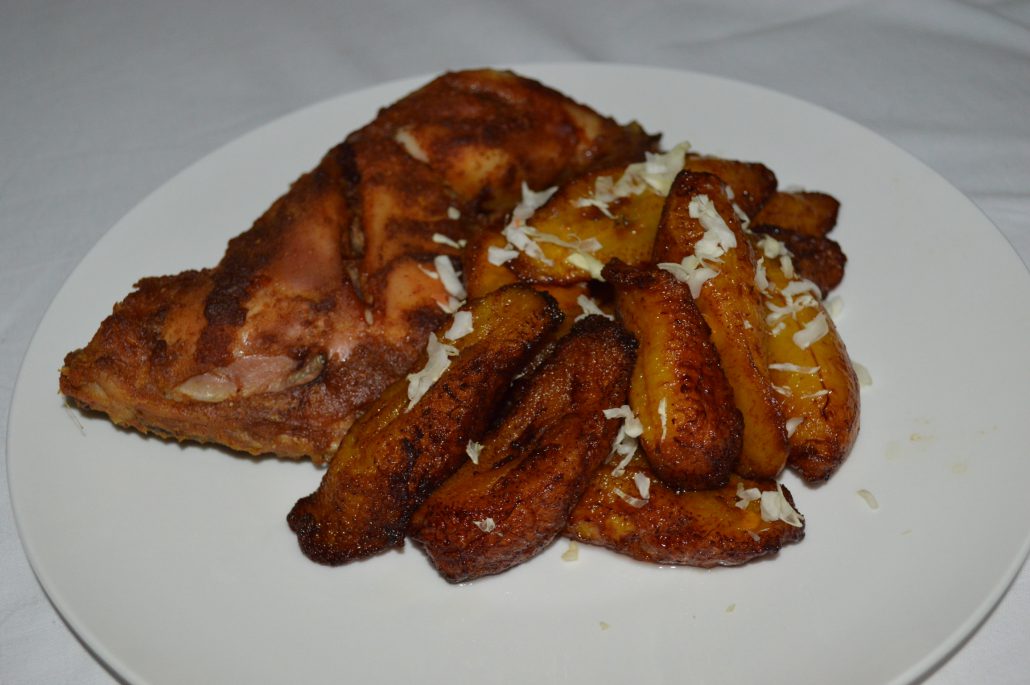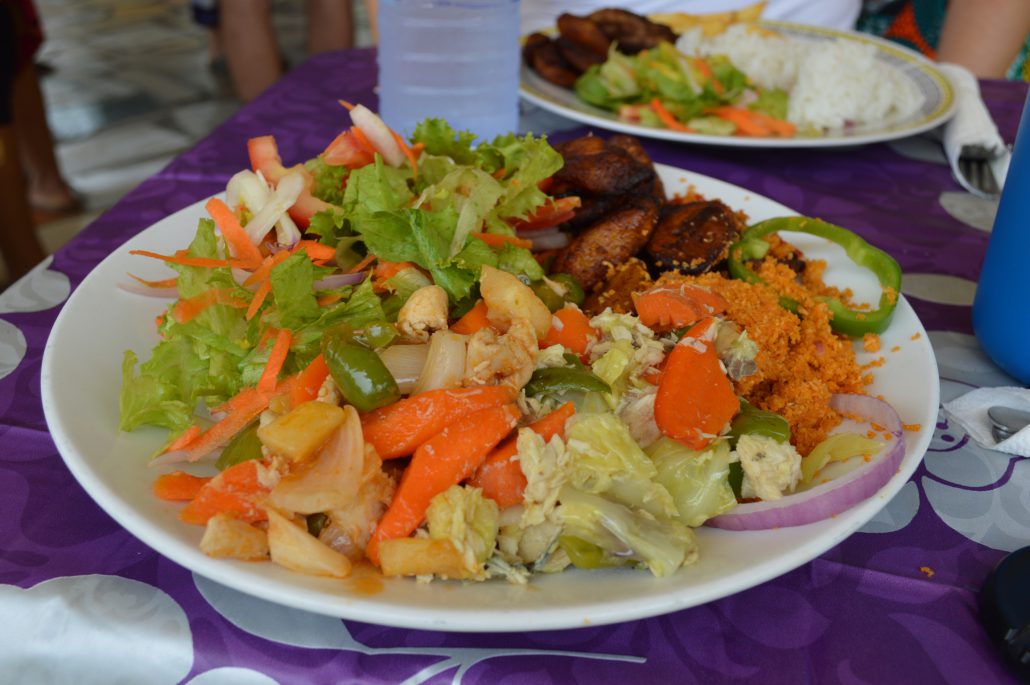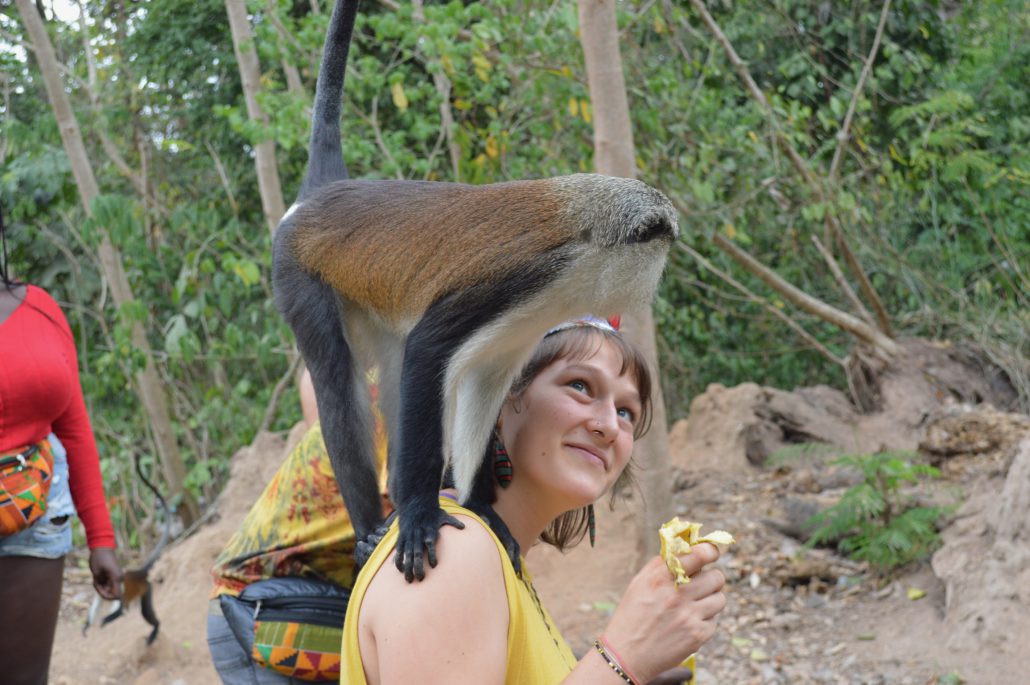BY ASHLEY YOUNG
When going abroad, one will most likely find themselves unaware of certain social customs that are unique to their host country, or that do not exist in their home country/ the United States. Certain patterns of speech, hand gestures, and actions can catch visitors off-guard and leave them amused, confused, or maybe even frustrated. In Ghana, I have certainly come across situations where I am not sure how I should respond to someone or what reaction I should have towards something they have done. In this blog, I would like to share a few of these situations as well as some other things that are useful to keep in mind, so that others can be prepared if they ever encounter a similar circumstance!
Common Phrases and Their Meanings/ Appropriate Responses:
– “Am I invited?” – Once, some new Ghanaian friends came to my room to say hi. At the time, I was eating dinner, and one of them asked me, “Am I invited?” I did not know how to respond – I was not expecting them to stop by and I did not have any food prepared for them. What I have now realized is that this is considered a polite gesture, and no one actually expects to be invited over. A polite response is to the question is, “You are invited.” Alternatively, one can sidestep the question a little and offer the person something else, such as a sachet of water. [Below: Some Ghanaian meals!]
– “Can I have it” or “You can have it” – While visiting her department to register for classes, my roommate was asked by an administrator in the office, “I like your earrings, can I have one?” She was completely thrown off and did not know how to respond. On another occasion, when telling someone we liked their dress, we were responded to with, “You can have it!” Again, we were surprised and not sure how to respond. Turns out, these comments should not be taken literally. Rather, they are just polite sayings that indicate a compliment (“Can I have it?”) or kindness (“You can have it”).
– “Will you marry me/ Will you be my bride?” – If you are a woman in Ghana, be prepared for regular marriage proposals. Sometimes, the individual is seriously looking for a relationship with the intention of marriage. Other times, this is a less serious comment, but the individual is still interested in some sort of romantic relationship. Good responses to such questions include: “I have a boyfriend, ” (even if you don’t), and “Sorry, but I am not interested.”
– “What is your number?” – Many, many people will ask for your number. I once was even asked for my number during a morning run – the individual proceeded to run alongside me, introduce himself, and ask for my number. The best way to deal with this is to just let the individual know that you do not give out your number. It may be necessary to take their number just to be polite.
– “I am coming.” – Ghanaians will say “I am coming” as they are leaving or walking away from you. This actually means that they are going, and that they will come back later.
– “I will flash you” – “Flashing” is the act of calling someone and then immediately hanging up, with the intention of getting that person to call you back. With the Ghanaian phone system, the one who initiates the call, pays for the call. Thus, people will “flash” each other to avoid using their phone credits.
Hand Signals and Body Language:
– The placement of the back of one palm on top of the inside of the other palm means “I beg,” or “please,” and is usually accompanied with such a phrase or the Twi equivalent.
– Always shake hands and greet groups from right to left, or counterclockwise.
– Receiving items, giving items, or gesturing with your left hand is considered rude. For example, in class, you must always raise your right hand to ask a question. Raising the left hand is a sign of disrespect to the lecturer. [Below: Feeding monkeys bananas with our right hands – coincidence? I think not]
Other Things to Keep in Mind:
– “Time is time.” This is a phrase used in Ghana which is well juxtaposed to the American phrase, “Time is money.” This outlook on the nature of time and the laxness around meeting with others and getting things done can come across as rude and be frustrating if one is not used to it. Just remember, time is time, and patience is key.
– Ghanaians (especially vendors at markets) will make what resembles a kissing noise to get your attention. This is not, I repeat, this is not, a catcall.
– Restaurants often do not have menu items available and can take a very long time to prepare food. My friend once had to order five different items! It is useful to ask if any menu items are not available before setting your mind on something only to find out it is not available. It is also useful to go out to eat before you are actually hungry, so that by the time you get your food, you are hungry.
– Lastly, appreciate cultural differences! If you travel to Ghana, or anywhere in the world, learn to enjoy those things that are new and surprising! Experience the culture, engage with it, and take the best of it home with you! Why not?
Ashley
———————————————————————————————————————
Complimentary Twi Lesson!:
Mesua Twi daa/ pii (I study Twi everyday/ a lot!)
Mekasa Twi (I speak Twi)
Wokasa Twi? (Do you speak Twi?)






Ashley Young studied abroad in Accra, Ghana in 2018: https://uceap.universityofcalifornia.edu/programs/explore-ghana



